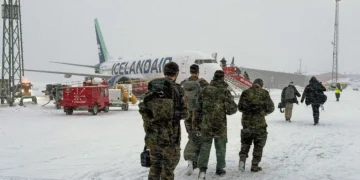This year marks the 20th anniversary of the catastrophic Indian Ocean Tsunami in 2004, which resulted in 225,000 fatalities across 14 countries. As we observe World Tsunami Awareness Day, it is a moment of reflection and a reminder of the devastating impact that natural disasters can have on our lives. It is also a call to action to prioritize effective tsunami preparedness, especially in the face of growing climate change challenges.
The Indian Ocean Tsunami, also known as the Boxing Day Tsunami, was triggered by a massive 9.1 magnitude earthquake off the coast of Sumatra, Indonesia. The resulting waves reached heights of up to 100 feet, causing widespread destruction and loss of life. The disaster not only affected the immediate coastal areas but also had a ripple effect on the global community, with countries coming together to provide aid and support to the affected regions.
In the aftermath of this tragedy, the United Nations General Assembly designated November 5th as World Tsunami Awareness Day, with the aim of raising awareness about the importance of disaster risk reduction and preparedness. This year’s theme, “Strengthening disaster risk governance to build a more resilient future,” highlights the need for effective governance and coordination in preparing for and responding to tsunamis.
One of the key lessons learned from the Indian Ocean Tsunami was the urgent need for effective early warning systems. In many of the affected countries, there was a lack of warning systems in place, leaving communities vulnerable and unprepared. Today, thanks to advancements in technology and increased global cooperation, we have more sophisticated early warning systems in place. These systems use a combination of seismic and oceanographic data to detect and issue warnings for potential tsunamis, giving people valuable time to evacuate to safer areas.
However, with the growing threat of climate change, we must continue to strengthen and improve these systems. Rising sea levels, increased ocean temperatures, and more frequent extreme weather events all contribute to the likelihood of tsunamis occurring. It is crucial that we invest in and maintain these early warning systems to ensure the safety of coastal communities.
In addition to early warning systems, effective disaster risk governance also involves educating and empowering communities to be prepared for tsunamis. This includes conducting regular drills and exercises, developing evacuation plans, and providing education on how to recognize the signs of a potential tsunami. By involving communities in the planning and preparation process, we can build a more resilient future and reduce the impact of disasters.
Furthermore, disaster risk governance also involves addressing the underlying factors that make communities vulnerable to tsunamis. This includes poverty, inadequate infrastructure, and lack of access to resources. By addressing these issues, we can help communities become more resilient and better equipped to handle disasters.
As we reflect on the Indian Ocean Tsunami 20 years on, we must also recognize the progress that has been made in tsunami preparedness. Many countries have taken significant steps towards building more resilient communities, and we must continue to work together to strengthen disaster risk governance.
On this World Tsunami Awareness Day, let us remember the lives lost in the Indian Ocean Tsunami and honor their memory by taking action to prevent such tragedies from happening again. Let us also recognize the importance of effective disaster risk governance and the role it plays in building a more resilient future. By working together, we can ensure that our communities are prepared and equipped to face any challenges that may come our way.
In conclusion, the 20th anniversary of the Indian Ocean Tsunami serves as a reminder of the devastating impact of natural disasters and the urgent need for effective disaster risk governance. Let us use this moment of reflection to renew our commitment to building a more resilient future and ensuring the safety and well-being of our communities. Together, we can make a difference and create a world where disasters no longer have such a devastating impact.




